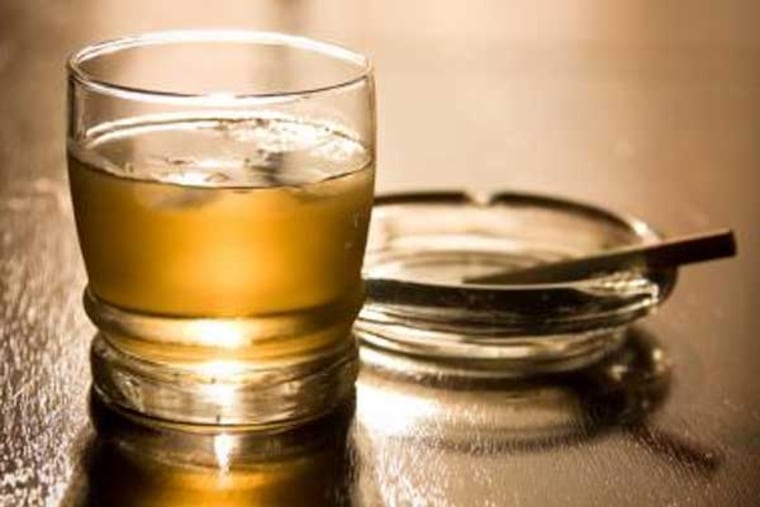DN Editorial: Boos for booze
Mayor Nutter has been loud and clear about the need for additional local money for the cash-starved district.

WHEN it comes to Philadelphia's public schools, Mayor Nutter has been loud and clear about the need for additional local money for the cash-starved district. When it comes to how that can be accomplished, the mayor has less to say.
Last week, he let it be known that he favors a proposal originally advanced by Council President Darrell Clarke to increase the city's over-the-bar drink tax from 10 percent to 15 percent to help the schools.
He also said he was in "preliminary discussions" about levying a city tax on tobacco sales.
The district has asked for $60 million in additional aid from the city. It wants $120 million from the state and about $123 million worth of concessions from the teachers union. Superintendent William Hite said the $300 million is needed to prevent a series of deep and painful cuts, including the elimination of all sports, extracurricular activities, guidance counselors, school libraries and most support staff.
It's hard to make the math on the two tax proposals mentioned add up to $60 million.
The over-the-bar drink tax would yield about $22 million, according to official estimates.
It is also hard to tell how much a city levy on cigarettes and other tobacco products would raise. The state already has a $1.60-a-pack tax on cigarettes bringing in about $1 billion in revenue a year.
Based on consumption data provided by the state Revenue Department, the city would have to tack on an additional 25 cents on each pack to raise $30 million. That's enough to drive smokers to New Jersey or across City Avenue to find cheaper prices.
The other problem: Neither of these taxes is under Nutter's control. The state Legislature would have to approve bills to allow the city to raise the drink tax and levy a local tax on tobacco products.
There is no guarantee that it will. In fact, because of Gov. Corbett's general opposition to any new taxes, it is hard to see Republicans rallying around Nutter's call. The state also may fear setting a precedent by allowing a local government to add a local version of the state cigarette tax.
There are local alternatives to the Hail Mary passes that the mayor has suggested. Councilwoman Maria Quinones-Sanchez has proposed a revenue raiser tied to the Use and Occupancy Tax, which is paid by tenants in commercial buildings. Most U&O taxes are due to decline because of the break that the citywide reassessment known as AVI gives to many commercial properties.
The Sanchez bill would lower the U&O from its current rate of 5.51 percent on the market value of a property to 1.74 percent. Still, because of the general rise in market values under AVI, this rate would bring in an additional $72 million. Her bill would also exempt tenants who pay less than $2,000 a year in U&O from paying the tax, protecting smaller businesses in the city's commercial corridors.
Sanchez's bill may not be the answer, but it certainly seems more concrete and doable than what Nutter has suggested so far.
Rhetoric won't do it. The situation in the schools is too dire. We need leadership from the mayor on this issue - sooner rather than later.